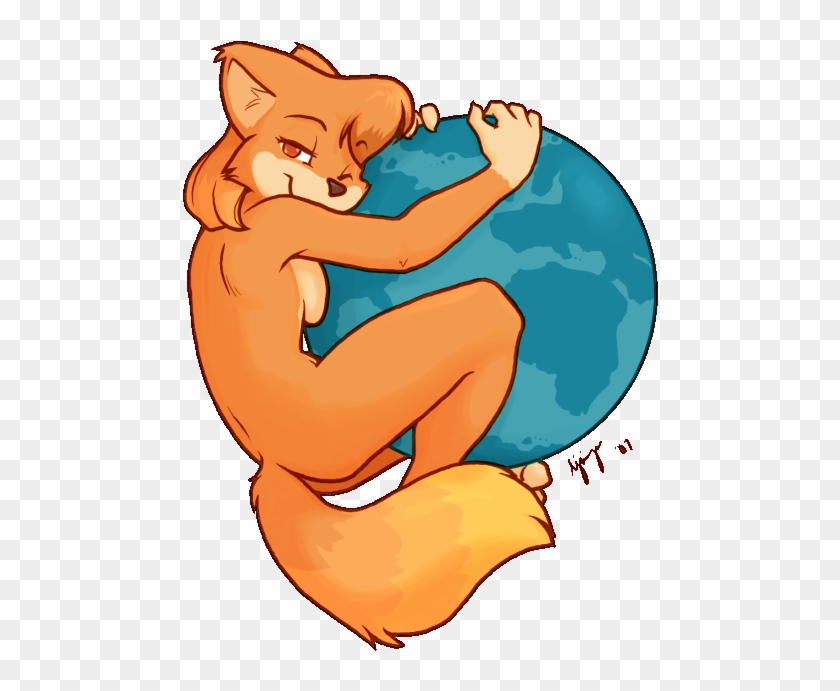
this shit got me reachin for the luger
You realize Lugers were very famously the weapons of the Nazi officer class, and Einstein very famously had to flee Nazi Germany?
Thatsthejoke.jpg
Most people don’t eagerly place themselves in the part of the Nazis.
Yes, you have correctly dissected that the joke is morbid hyperbole to cause a shock response that gives way to elation upon realization of the obvious irony in their overreaction to Einstein speaking like generation Z.
Ok bro that empathizes with Nazis
Stop trolling on Lemmy and get yer shit together
And then they fuck around and wonder why I call .world a nazi bar
Hans get the flammenwerfer
Jesse what the fuck are you talking about
This must be trolling acc
Bruh, yo facts bussin’ on God fr fr
Someone pass me the Garand, there’s a YOOTH
oooo i did not know that, i was quoting some of plummcorp’s videos
This never gets old
deleted by creator
Fancy memes
Shout out to the midnight gospel for putting that word in my lexicon
My fiancée and I were talking about this the other day, and the conclusion we reached was that our language, as it always has, is evolving, and these new phrases are just as valid as anything anyone has said before. People don’t want to accept it, because they think of Internet memes as silly, and that’s where a lot of this language comes from (there’s also racism involved, because, of course there is), but it’s too late. That’s what English is now. Sucks to suck, fam.
i’m inclined to side with the initial tweet because I’m not a big fan of memes. I don’t have any data (because I don’t hold this opinion strongly) but it feels like so much more communication today is just references to other things. And I don’t think I believe that memes in academic papers are an “evolution” of the language - I think they’re doing it to get attention.
I’m not saying original statements are inherently better than repeated ones but “meme culture” is just posting the same thing over and over and it feels so…lazy and boring. I really struggle to understand how people enjoy seeing the same joke for the 100th time. As an example, any time a video game or movie introduced a cute animal, you’re guaranteed to see someone oh-so-cleverly add it to the “If anything happens to [name]…” template. Is there really no better way to express that you think an animal is cute? Did you really even want to express it or did you make it for Internet points?
I dunno. I guess I just don’t like the repetition of everything nowadays. It reminds me of a kid I went to school with who could not have a conversation without dropping in several Simpsons quotes…yeah man, I saw the episode and it was funny when Homer said that. It’s not very funny when you say it.
The repetition is what allows them to become language, though. Every meme that enters popular culture is essentially a metaphor, and, by being repeated over and over, and only changed slightly, the meaning is taught to the audience, and it evolves into an idiom.
There can be problems with description, precision, and audience knowledge, but that is true of any word or phrase. The difference is just the rapidity at which these new idioms are entering our language. As long as the author is competent, and ensures that there is enough context and relevance in the work, as is already a requirement of proper writing, restricting the use of meme language is unnecessary
Thank you. Let’s not forget that at its root, “meme” just means “imitated thing” and is just an idea that can be communicated from one consciousness to another. It’s a scientific concept, defined by a term coined by an evolutionary biologist to describe the way that ideas move through a culture/society. Memes are not new and have likely been around in some form since before spoken or written language existed
I’m not sure how to phrase this well but I feel like you’re giving memes way too much credit by comparing them to idioms. There is nothing being added to the message when paired with a generic meme template so it’s not as much a method to express yourself as it is an attempt at giving the reader a dopamine hit when they recognize the image. It’s also different than words or phrases evolving because it’s the image template, not the words, giving the dopamine hit.
I think my issue with them can be described as this: Most memes aren’t made to communicate an idea, they’re made to get attention. They’re the visual equivalent of a clickbait headline and I don’t think they’re adding to or changing our language. If what you have to say is too banal to be said without an image template, why make it if not for those sweet sweet upvotes?
I’m not necessarily arguing here, just trying to find the right words to express my feelings on it.
Memes don’t end at the image though. And by now, lots of memes are more than just images. If I say I’m going to “yeet” something, most people (below a certain age) know what that means. They don’t all become language, but the better, more popular ones do. It’s the same way we get all our words, really. I don’t know where the term “blue blooded” comes from, but I can still use it. In the same way, I don’t know where “down bad” came from, but I still know I’m down bad for etymology, and the study of evolutionary linguistics; it’s all fascinating.
Yeet is an example of a word or idea that fits the original description of meme, though. My “issue” (using that word lightly) is the overuse of image templates in place of words
Literally no one was talking about image templates until you brought them up, and the type that you’re referencing seem totally irrelevant to this conversation about words in academic paper titles.
It’s extremely adjacent. The original post is not about individual words that are new to the language being used…they’re talking about quotes and references. How do those get shared nowadays? Through image templates.
…but it feels like so much more communication today is just references to other things.
Shaka, when the walls fell.
Sokath! His eyes uncovered!
Thing is, a lot of English expressions come from Shakespeare’s works, the memes of the time. Like, a lot. So communication back then was also references to other things. Now, I agree the scale is different, and now it’s a massime phenomenon with internet and such.
A lot of the language you use is a reference to other things. And language evolves precisely because enough people repeatedly used a word or phrase in a new way. It seems that your main criticism of the use of memes in literature is that they “dont feel right” or that you merely dont like where things are going which isn’t a solid rationale for disallowing them any more than people thinking the use of the word literal figuratively somehow makes the figurative use of the word literal “wrong.”
Really if I had to make my opinion more concise, it isn’t just that it “doesn’t feel right” - it’s that it feels like the word choice was used not to better express their idea but to be flashy and trendy. It’s not that a writer used a pop culture reference, it’s why the writer used it.
I’d have a very similar opinion if the trend was to use wacky typefaces or colors for the title. It serves no purpose other than to catch your eye (hence my clickbait analogy) and I think academia should be held to a higher standard than buzzfeed
Getting the attention of your intended audience is part of communicating effectively. Buzzfeed has the reputation that they do because they embellish and distort the truth and outright lie for entertainment purposes. That is the problem not that they make use of memes to get their intended point across.
I think it’s just not the venue for the language, it’s new and informal, it doesn’t belong in academic papers.
deleted by creator
The disconnect for me happened when memes started being made for the masses and I don’t mean that in a “I liked them before they got popular!” way. I mean when they changed from being in-jokes to attempts at virality.
Does that make sense? Genuinely asking because I don’t know how exactly to phrase what I mean. Like a meme made for your group chat is an in-joke and one made “for the public” is…content. I’m not asking anyone to agree with me but I’m hoping my point is understood
[Edit] fixed autocorrect changing virality to vitality
deleted by creator
Autocorrect got me! I meant virality. Like they’re being made for the upvotes. To become viral and be seen by as many people as possible or to be monetized by a meme account on Instagram.
Alternative and in the same vein, people rush to make the obvious joke… Not because it’s a good joke or even one that has to be told. Just because they want to be the first one to say it
I think I largely agree with your broader point. The analogy I go to music. The difference is between drawing your largest possible audience within a niche versus trying to reach the largest possible audience with whatever has worked before. Very few people are actually creating or using them creatively. Most are just recreating or sharing what appeals to them.
Just because they want to be the first one to say it
Or rather because they want to be the first one to take part in the comedy ritual this time.
Not a fan of memes or jokes in titles/general for semi serious publications. Not entirely because srsbusinessonly but more clarity in communication. Leave the excessive meme usage for the science communicators in order draw the groans that sustain their life essence.
I’m not sure the music analogy quite fits what I was trying to get across - appealing to the lowest common denominator isn’t a bad thing.
It’s that memes takes no effort compared to making something original and they appeal to the lowest common denominator so they get the most attention (and upvotes/likes/whatever feel good). This does two things: incentives people to make template memes instead of expressing original thoughts and drowns out the original thoughts of others.
I see the value of memes as “conversation starters” (like this thread) so I don’t hate them, I just think it’s made social media worse and a lot more boring.
I totally agree with your point on publications. It’s one thing to have a creative title with a built-in pin but adding fluff just to get laughs…I dunno, I’m not saying they shouldn’t have fun but it distracts from the point.
Scientific papers should be timeless. Can you imagine the hell of having to research the pop culture and slang of an era just to understand a paper written in it?
To be fair, I think that’s what the part after the colon was for.
Yeah this kind of casual title is very rare, and it’s always just a small addition to an otherwise straightforward title. No one would allow for a purely cheeky title and no author would want one anyway. The first thing people use to judge the relevance of your paper is the title. If it’s not immediately obvious what it’s about, they’re not going to look further. Immediately obvious for someone in a related field, anyway.
Tbf, it wouldn’t be hard to just have an LLM translate it for you.
What if language evolves to where the consensus opinion is to gatekeep silliness out of academia though? Evolution cuts both ways, English could theoretically evolve into a fully prescriptivized language like French, and that’s just as valid an evolution.
That certainly could happen. It doesn’t seem very likely though, especially since so many different cultures already have their own versions of English, and the main two rarely agree on anything.
I mean, it seems like that’s the cultural push-and-pull depicted here: Some people don’t like it and make that known. If their opinion ends up prevailing and papers containing silliness end up being rejected by the major journals of their field, doctoral comittees etc., eventually the silliness may be driven out and gatekept.
We fans of harmless humour would lament as much as the guy in the OP laments now. We would presumably attempt to encourage silliness, as the guy in the OP does now.
Consensus swinging one way naturally doesn’t magically mean we now have to change our opinions to fit the consensus. Right now, language evolves in our favour, and we will attempt to support and leverage that evolution because it suits us.
I’ll do you one better.
Not only is the language itself evolving, but we acquire more and more idioms and jargon as society moves through the industrial age. Right now, english has this playful mishmash of nautical, railroad, and now computing idioms reflecting each technological epoch’s mark on speech over the last 200+ years.
Based.
German chancellor Olaf Scholz wrote about how we are in a time of change cause the power structures of the world are shifting. He called the chapter about Russia “the empire strikes back”.
I don’t see any credentials after Michael’s name, so, I’ll side with the published author this time.
Some people think repping their credentials is conceited. Independent of that, I’m on team do-what-you-want-it’s-your-title-just-make-sure-it’s-descriptive-so-the-reader-still-knows-what-the-article-is-about.
As long as you don’t make your title incomprehensible to anyone who isn’t a native English speaker
Incomprehensible now, or 5 years from now?
I honestly love this approach for eye-grabbing titles to otherwise dull topics.
If there’s a problem, yo I’ll solve it: Application of Large Language Models for resolving deep problem sets.
She got a point
I’m with the first person











